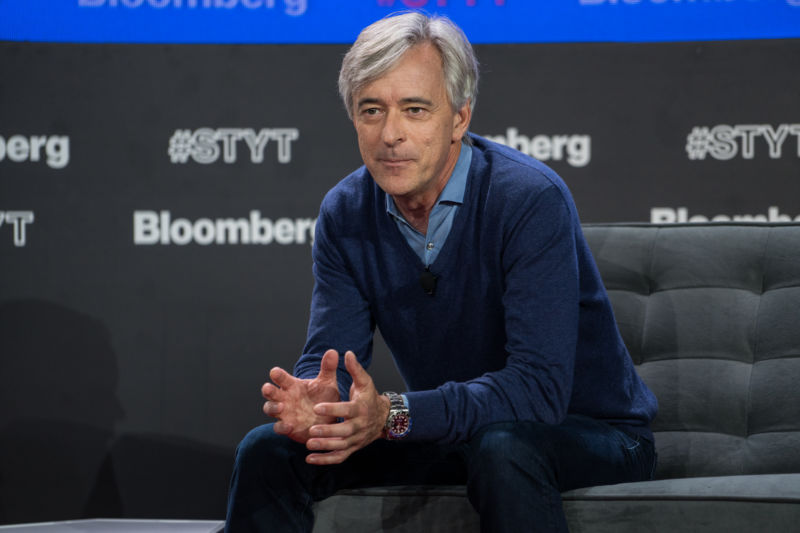
John Krafcik, the former auto industry exec who took over Google's self-driving car project in 2015, is stepping down as CEO of Waymo. Waymo, which spun off as a separate Alphabet subsidiary in 2016, accomplished a lot during Krafcik's five-and-a-half-year tenure. Still, Krafcik failed to meet the lofty expectations he faced when he took the helm.
Until 2015, the Google self-driving car project was led by engineer Chris Urmson. At that point, Google CEO Larry Page believed the technology was nearly ready for commercialization, so he hired a car guy—Krafcik—to manage the practicalities of turning the technology into a shipping product.
Krafcik spent his first few years negotiating partnerships with automakers. Talks over a potential partnership with Ford fell apart in early 2016. Krafcik then inked a smaller deal with Fiat Chrysler to buy 100 hybrid Pacifica Minivans—a deal that was later expanded to 500 minivans.
In early 2018, Waymo announced plans to buy "up to" 20,000 Jaguar I-PACE electric cars and "up to" 62,000 more Pacificas. Around the same time, Waymo said it planned to launch a driverless commercial taxi service before the end of 2018.
In short, Waymo expected its self-driving taxi service to be a big business by around now.
Things haven't gone according to plan
If that had happened, Krafcik would have been well-positioned to lead Waymo as it scaled up from a small pilot project in Arizona to a large business with tens of thousands of vehicles in dozens of cities. With a deep understanding of auto industry logistics and strong relationships within the auto industry, Krafcik could have ensured that the process of integrating Waymo's technology into Jaguar and Chrysler vehicles, and then manufacturing a bunch of them, went smoothly.
But that didn't happen because commercializing self-driving technology proved to be more difficult than Waymo's leaders—and a lot of outside analysts, including me—expected in 2018. Waymo did launch a commercial service in December 2018, but it came with a big asterisk: at launch all vehicles still had a safety driver behind the wheel, all but ensuring the service would be unprofitable.
It would take almost two more years—until October 2020—for Waymo to stop using safety drivers for most commercial rides. There are now some signs that Waymo's service is finally expanding beyond its initial market. In recent months, the company has stepped up testing in San Francisco, prompting speculation that the Bay Area could be Waymo's second market after Phoenix.
But the pace of growth seems glacial compared to the expectations the company set a few years ago. A Waymo spokeswoman told Ars that the company's fleet has "well over 600 vehicles across all of our locations." Six hundred vehicles is fewer than 1 percent of the 82,000 vehicles Waymo ordered three years ago.
It's not clear why. Perhaps Waymo is expanding gradually for safety reasons. Maybe the vehicles require so much human oversight on the back end that the service is unprofitable even without a safety driver. Maybe it will just take time for Waymo to build out the infrastructure necessary to support thousands of vehicles in a bunch of cities.
And to be fair, it's not clear if any of this is Krafcik's fault. It's possible that self-driving is just an inherently difficult problem and Waymo would have struggled to bring its technology to market under any leader. It's not like anyone else in the industry has leapfrogged Waymo.
But the slow pace of self-driving technology certainly makes Krafcik's auto industry expertise less relevant. Whatever constraints there might be to Waymo's growth, an inadequate supply of vehicles certainly isn't among them.
Krafcik will be succeeded by a pair of longtime Waymo executives who will serve as co-CEOs. Dmitri Dolgov is an engineer who has been part of the Google self-driving car project since 2009 and was previously Waymo's Chief Technology Officer. Tekedra Mawakana joined Waymo to lead its policy shop in 2017 and rose to be Chief Operating Officer in 2019. Dolgov will focus on improving Waymo's technology while Mawakana will be responsible for business strategy.
Article From & Read More ( Waymo CEO John Krafcik steps down - Ars Technica )https://ift.tt/3cJNrFA
Business
Bagikan Berita Ini














0 Response to "Waymo CEO John Krafcik steps down - Ars Technica"
Post a Comment